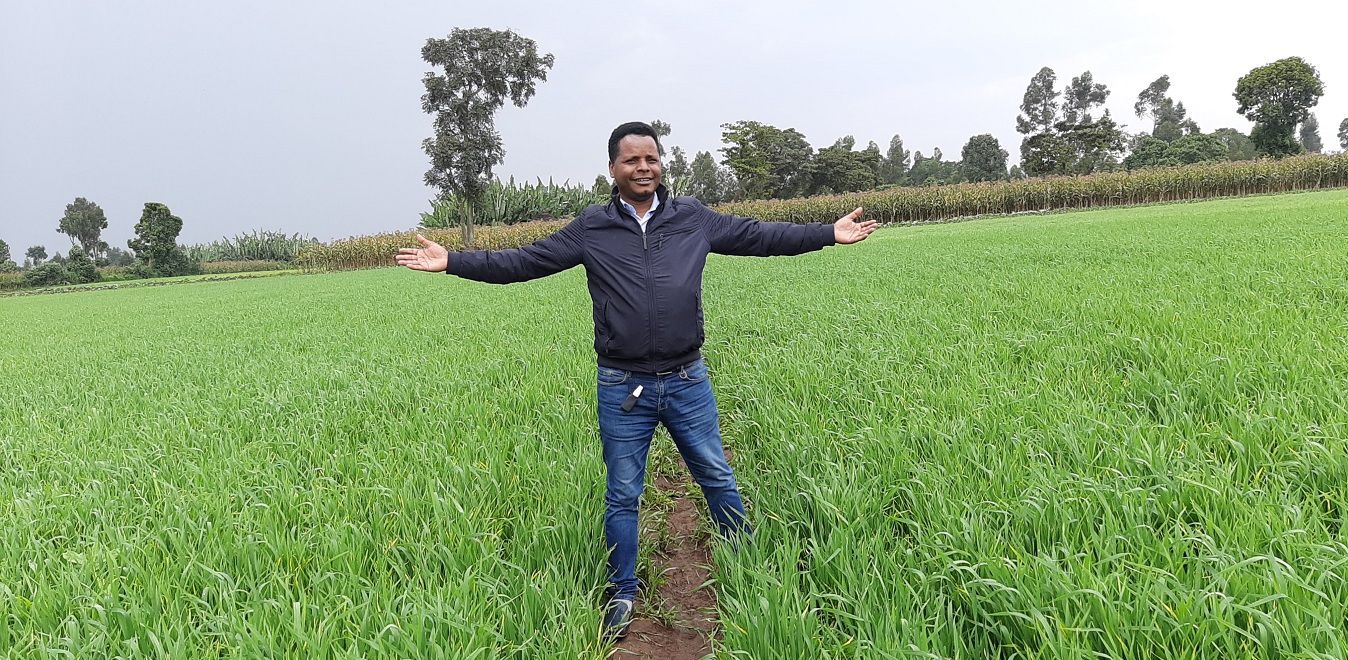By Neville Otuki
Like many Ethiopian farmers, Endashaw Mekonnen wasn’t achieving the results he’d expected. His harvests were small and his profits thin from his vast barley fields in Oromia, western Ethiopia.
It wasn’t until he joined a training program established by French agricultural group Soufflet that he discovered the problem—his seeds and soil. Thanks to training and financing he received through the program, Mekonnen switched to high-yielding seed varieties and adopted techniques to increase the fertility of his soil.
“I’m very happy with the training around modern agricultural practices,” he said. “More and more farmers are signing up for the program.”
Barley, an important ingredient used in beer-making and found in foods like Injera, a popular spongy flatbread, is the fifth most produced cereal in Ethiopia after teff, wheat, corn and sorghum.
Even though farmers have grown barley in the favorable climate of Ethiopian highlands for generations, inefficient practices and limited access to important inputs have reduced their yields. Weak supply chains have also made it difficult for farmers to access markets and earn regular incomes. At the same time, demand for malt barley in Ethiopia is growing steadily in line with the increasing numbers of investors who require malt barley as a raw material for their products.
These investors include: maltsters such as Soufflet and Boortmalt, as well as brewers such as Heineken, Castel and Habesha. The industry as a whole is unable to secure sufficient quantities of local barley for their needs and instead rely on imported barley. About 70 percent of the malt used by Ethiopian brewers is imported.
But that may soon change. With support from IFC and the Private Sector Window of the Global Agriculture and Food Security Program (GAFSP), Soufflet Malt Ethiopia, a subsidiary of French company Groupe Soufflet, has built a large malting factory in Addis Ababa to increase local barley malting capacity, with the aim of sourcing 100% of its barley needs locally in coming years. It’s aiming to produce 110,000 metric tons of malt annually, with about 80 percent of their barley needs sourced from local smallholders.
As part of the project, Soufflet— a leading international malt producer—is working closely with farmers to help grow and transform Ethiopia’s barley sector.
“Building local supply chains is at the heart of our strategy to ensure we have enough barley to feed our factory,” said Jean-Benoit Vivet, Soufflet Malt Ethiopia general manager.
In 2020, Soufflet, with support from IFC and GAFSP, established the BOOST training program, inspired by a similar project run by Heineken that helped some farmers double their barley output. BOOST—which stands for ‘barley organization of supply and training’—is a three-year program that that aims to empower local producers such as Mekonnen, helping them improve and increase yields. BOOST works by providing farmers with top-quality seeds, agribusiness training, access to microfinance, and links to reliable markets.
In the past, accessing seeds was a hassle. This is changing, thanks to a more structured contract farming model that allows farmers to be issued with input financing and get tracked. The program also places special emphasis on training and empowering the estimated 5,500 women farmers who are participating.
The first harvest of the cereal under the project is expected early 2021, with signs already pointing towards significant improvement in yields, according to Mekonnen, who hopes to make the leap from subsistence to more commercial farming thanks to a link with a reliable buyer.
Meanwhile, Soufflet is introducing its own higher-yielding seed variety— in addition to the improved Heineken-licensed seed— to their contracted farmers through pre-finance arrangements.
Soufflet’s target is to source 80,000 tons of barley annually from 55,000 farmers, including 5,500 women farmers. The BOOST training program aims to reach 30,000 farmers in the first year of the project and an addition 25,000 in the second year.
Dereje Endashaw, a barley farmer, is excited to get started. He’s hopeful that the training will help increase his output and income, and effectively teach him how to graduate from subsistence to more efficient commercial farming. “I’m hopeful this program is the beginning of bigger things to come,” he said.
Published in April 2021
